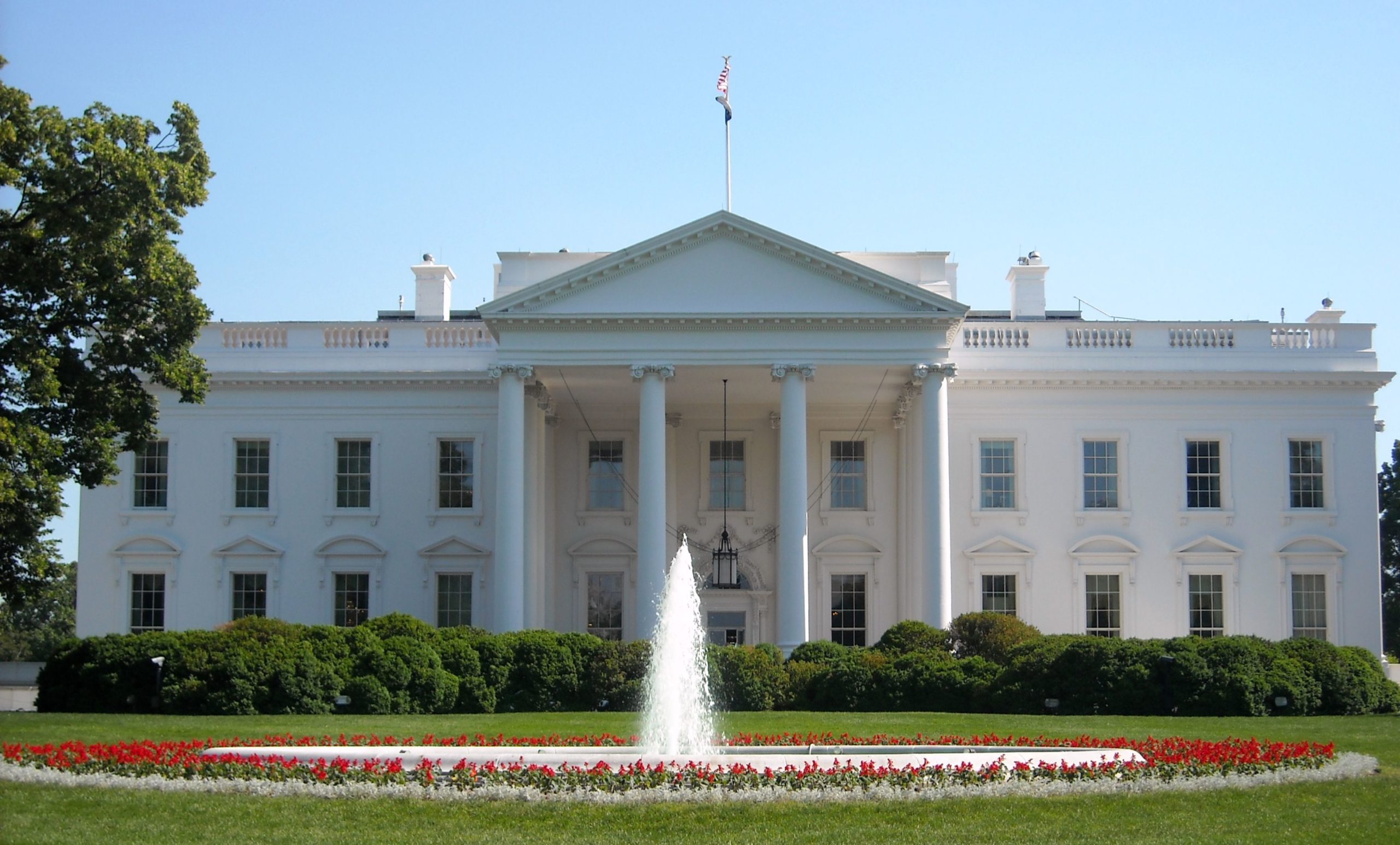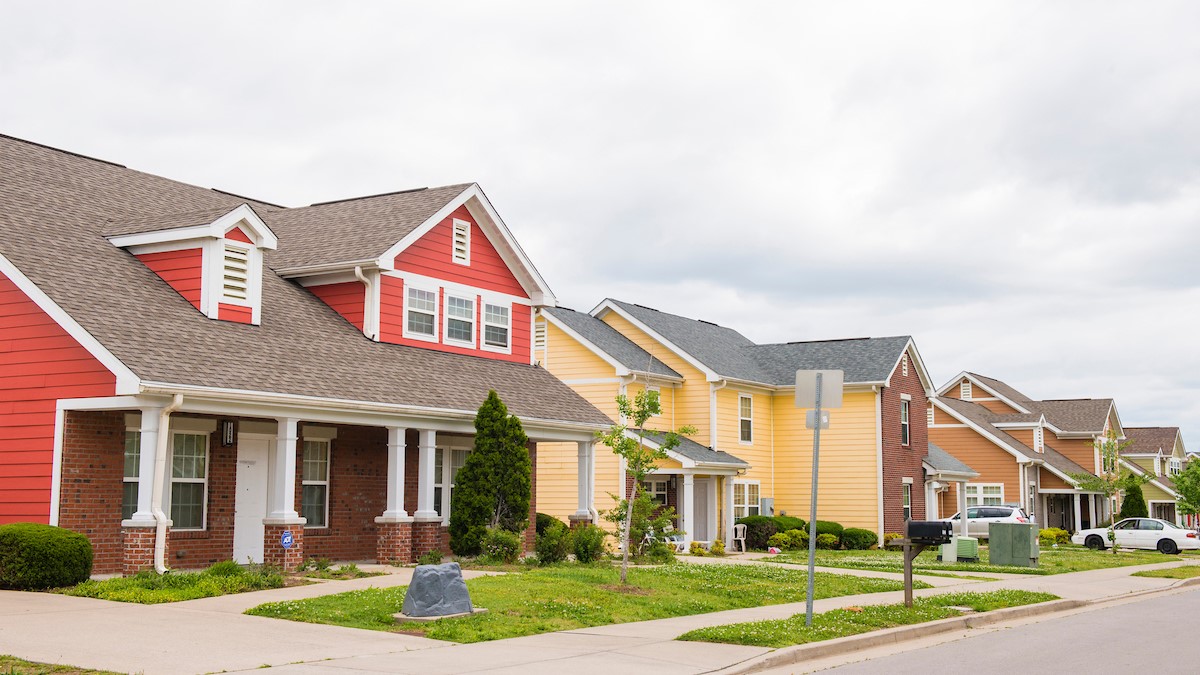Abortion rights, women of color, and LGBTQI+ people are under attack. Pledge to join us in fighting for gender justice.
Discrimination Is Nothing New for the Trumps

Discrimination (racism, sexism, the list goes on) runs in the Trump family. In the 1970s, the Department of Justice (DOJ) sued Donald Trump and his father for their racially discriminatory housing practices with their Trump Village housing project in Brooklyn. Trump Village did exactly what you’d expect: rented to white applicants and turned away people of color who applied. Applications from people of color had a big C written on them. Despicable. Nearly five decades later, Trump is returning to his roots of perpetuating housing discrimination, this time with the U.S. Department of Housing and Urban Development (HUD)’s latest proposed rule.
We’ll explain more below, but here’s what you have to know: This proposed rule seeks to gut one of the nation’s most vital tools for addressing and preventing housing discrimination, the Disparate Impact Rule, which will have far-reaching consequences. And, spoiler alert, they’re not good ones.

What Happened?
The Trump-Pence administration has attacked protections against discrimination in health care and education, as well as proposed rules to take away basic necessities like food and housing from low-income women, children, and families. Recently, the administration proposed a rule that seeks to gut civil rights protections in housing. HUD’s proposed rule, if finalized and implemented, will make it nearly impossible to challenge “neutral” policies that disproportionately harm women, families with children, people of color, LGBTQ+ people, people with disabilities, and other marginalized communities.
What’s at Stake?
As Fatima Goss Graves, President and CEO of NWLC said, “Having stable housing is core to a person’s ability to be healthy and succeed at work and in school.” Housing instability makes it harder to afford health care, including reproductive care. Housing instability impacts children’s ability to focus on what they need to learn in school rather than learning how to just survive. Concentrating on finding a home makes a job search virtually impossible. This is why protecting our civil rights, including housing anti-discrimination protections, is so vital.
One week after Dr. Martin Luther King Jr. was assassinated, Congress passed the Fair Housing Act (FHA) with bipartisan support. For more than 50 years, the FHA has served to eliminate barriers to housing and promote opportunity for women and families with children. The FHA helps to foster more inclusive and stronger communities, which is vital to the success and prosperity of our nation. And for more than 40 years, courts and HUD have interpreted the FHA’s prohibition on discrimination to include something called “Disparate Impact,” meaning that housing policies that appear neutral on their face but have a discriminatory effect in practice are still prohibited under the FHA. This is important because, in a surprise to exactly no one who is paying attention, discrimination in housing based on sex, race, color, national origin, disability, familial status, and religion still exists today—but often in the form of policies or practices that seem nondiscriminatory until you see how they play out in real life.
Here are just a few examples of policies that could be harder to challenge in court if the Trump-Pence administration’s proposed rule is finalized and implemented (but don’t get us wrong—they still definitely have a disparate impact on these populations and violate the Fair Housing Act!):
- Landlords have a policy where they evict tenants when there is any criminal activity on the property. The impacts of this policy include evictions for survivors of domestic violence, the majority of whom are women, after they call the police to seek protection from their abuser, placing survivors and their children at risk of homelessness and further violence. With housing assistance already under attack, survivors do not need to face more evictions.
- Landlords could exclude applicants who don’t hold full-time jobs, even if they otherwise meet the income requirements. This could bar women who are almost twice as likely to work part-time as men (whether because they cannot access affordable child care or because they cannot get full-time work), as well as some people with disabilities who cannot work full-time due to medical conditions or because of employers’ bias and discrimination, from getting a home.
- Banks could charge excessive fees or rates to people seeking home mortgage loans. After decades of redlining (AKA systemic denial of loans for homes in communities of color) denied people of color loans that could help them buy a good home for their family and build wealth (racial wealth gap anyone?), the practice of outright denying credit based on redlining was banned. So mortgage lenders turned to reverse redlining—forcing people of color with limited means to either take risky, exploitative mortgage loans or give up on their dream to own a home because they cannot afford the financing. Courts have called reverse redlining for what it is—discrimination under the Fair Housing Act. But that could be much harder to prove with this proposed rule.
- Landlords could impose overly restrictive occupancy requirements, which have a disparate impact on families with children (i.e., “familial status”). The reality is that rent costs have risen while wages remain stagnant, making it impossible for many families to afford one bedroom per person. Some families with children would be barred from renting or would be forced to rent more expensive multi-bedroom apartments, leaving less money for other basic necessities, such as food and health care, and threatening children’s educational opportunities. Pregnant women could be evicted after giving birth. Low-income domestic violence survivors with children who are trying to escape their abuser but cannot afford a separate bedroom for each occupant would face even more dire choices. And while student status is not a protected class under the FHA, they benefit from the current protections against occupancy restrictions. If this disparate impact protection goes away, low-income college students who want to get an education but don’t have enough money for their own bedroom wouldn’t be able to use the classic room-partition method to share space with a roommate.
- Insurance companies could refuse to insure homes under a certain dollar value—what’s known as insurance redlining. This would leave homes in low-income neighborhoods of color uninsured, preventing these homeowners from fully protecting their homes from damage due to hurricanes, fire, or other disasters.
- Cities could change their zoning laws in ways that disproportionately harm low-income communities of color (e.g., requiring only “single-family units”). Des Moines, Iowa is just one example of such a harmful proposal in the midst of the local Latinx population growing.
Gutting disparate impact in housing by making it nearly impossible (if not fully impossible) for plaintiffs to win their case and hold bad actors (private and public) accountable for their discriminatory policies would have disastrous consequences for people across the nation. This is why we must maintain the full force of our federal civil rights laws, including disparate impact under the FHA.
What Can We Do?
Housing is a human right. That’s why civil rights organizations, fair housing groups, and other advocates across the country are fighting to preserve the Disparate Impact Rule and its vital protections. Join us to fight against this proposed rule, and all other attacks to our civil rights, so that ALL women, children, and families can have free and fair access to a broad range of economic and social opportunities. Stay tuned for NWLC’s comment portal, but you can learn more about the #DefendCivilRights campaign at https://www.defendcivilrights.org/.






